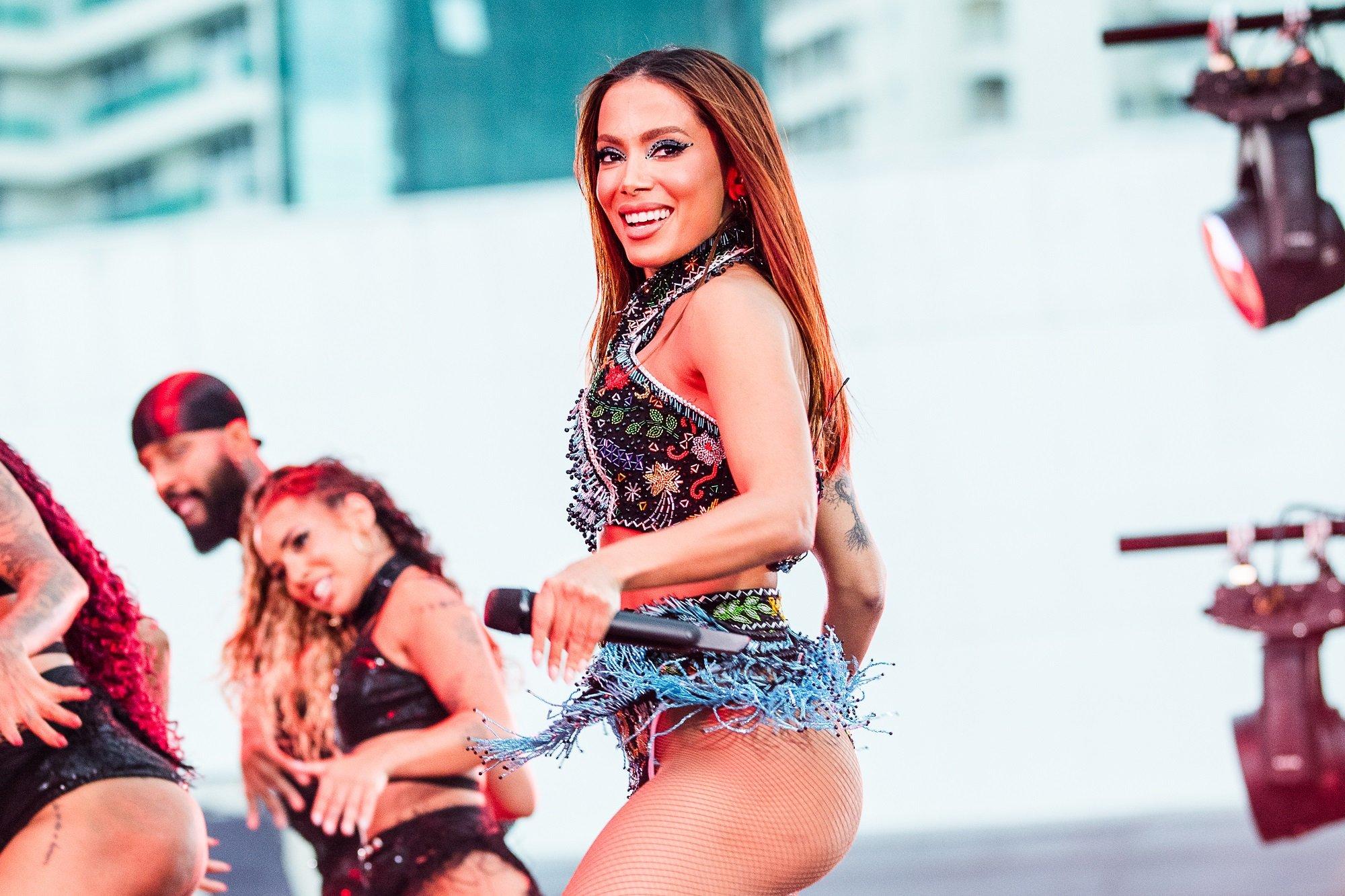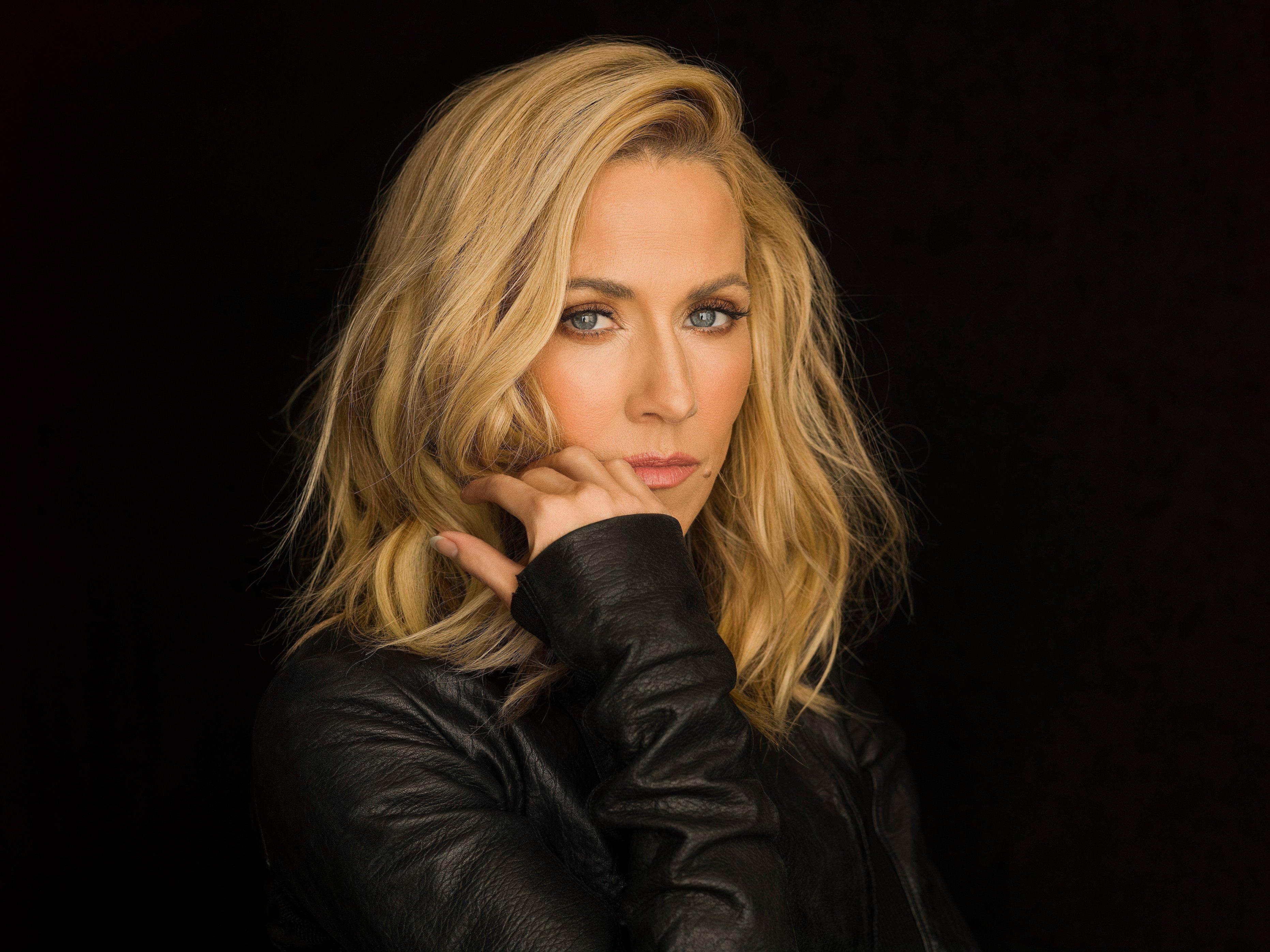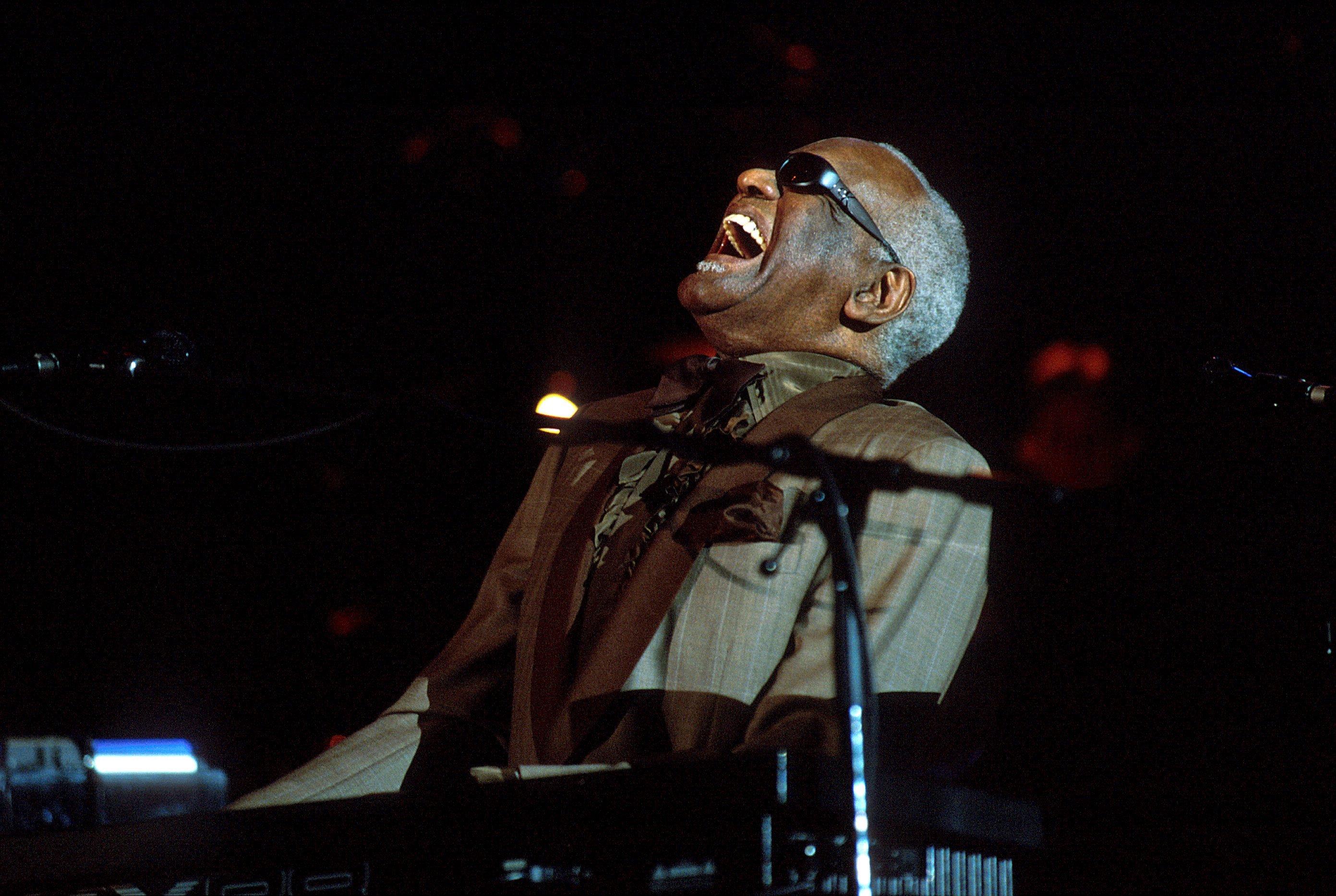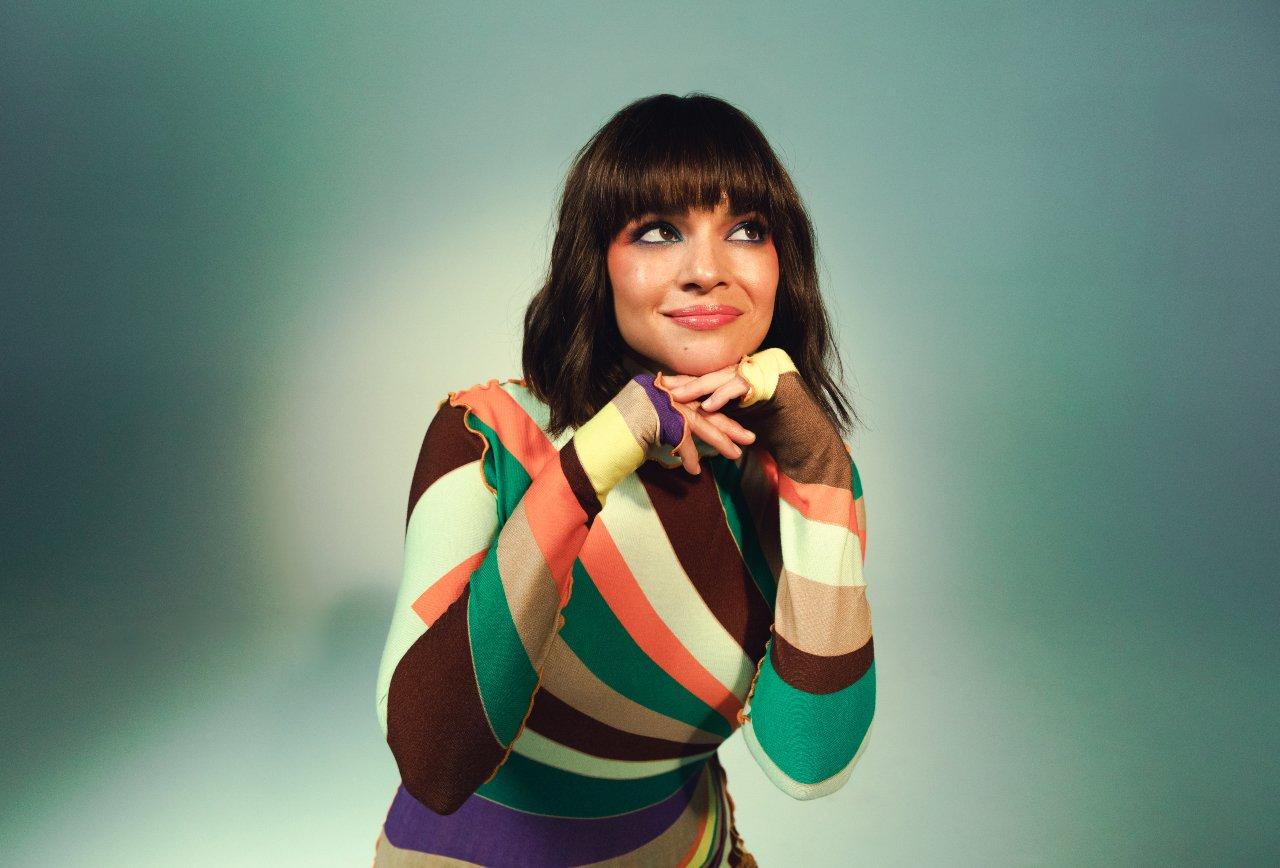When Sheryl Crow released her tenth studio album, 2019's Threads, she declared it'd be her last — even calling it "a beautiful final statement."
"People don't listen to whole bodies of work anymore. In fact, I'm not sure they even listen to a whole song anymore," Crow explains. "So it seemed kind of, not only futile, but also, at this stage, it seems like a long process that's expensive when really, it's best to put out something you really believe in."
As it turns out, she really believed in her eleventh album, Evolution.
Crow's music has always been as insightful as it is catchy, and Evolution is perhaps the most existential example of that. Throughout, the nine-time GRAMMY winner poignantly muses over the state of the world and humankind, while also reflecting on the moments and the ideals that still give her hope. Along the way, she throws in very Sheryl Crow quips ("Anger sucks, but at least your brand's trending," she sings on "Broken Record") and makes some important statements ("We are brilliant, we are kind/ But sometimes we miss the glaring signs," she urges on the title track).
If Evolution ends up being Crow's actual last album, she'd certainly be going out in signature style. It's a culmination of what's made her music so timeless: unabashed honesty, soulful musicality, and unbridled joy.
GRAMMY.com sat down with Crow to discuss her unexpected album, her "liberating" new creative process, and major moments that have made her career feel like a fairy tale.
After declaring that you wouldn't make any more albums, how did creating Evolution change your perspective on the rest of your career? Do you think you'll go back to making albums?
Well, this was not like any experience I have ever had. I've never made a record where I wasn't there for it. I mean, I was there, but when I typically make a record, everything starts and ends with me.
This was me sending a guitar vocal to this incredible producer, Mike Elizondo, who basically was like Martin Scorsese. He would take my little screenplay and just build this cinematic landscape around it. I've never had that experience where I walk in and hear myself in the context of something I've never heard before. And it was really a beautiful experience.
Once I got over the fact that I'm not playing everything — once you check your ego and go, Wait a minute, this is exactly what you wanted. You wanted your stories, your thoughts to be built on — it made it so different than any process I've ever experienced.
Will I go back and make records the way I used to? I don't know. I'm going to quit saying I'm never gonna do an album again, because I don't know. [Laughs.]
You've said that this is kind of a diary turned into an album. You can actually feel that in some of the songs. I can envision you sitting down and just spilling your heart out, and then it turning into a song.
I've never made a record where I just wrote the song and then let it go, and then it came back to me. It was a really colossal gift that I gave myself, to let go of it and be okay with what came back to me.
Luckily, there was no disappointment in what came back, because I know Mike Elizondo so well — like, for 20 years. And the interesting thing about this process is the whole thing came together over one song that we put on the record [last].
It's called "Digging In The Dirt," it's a Peter Gabriel cover. It's on the deluxe [version of Evolution]. I called Mike, I said, "I have been really soul searching. I've done a guided mushroom tour. I am really trying to navigate how I'm feeling about this moment in our humanity, and I want to do this song 'Digging In The Dirt,' would you produce it?" He said yes.
We sent it to Peter, and quite a long time went by, and [when we] got it back, he'd put himself on it. Then, it was like, Okay, we have an album.
I imagine that you probably weren't thinking he would put himself on the cover.
I wasn't. We sent it to him and he really liked it. And I said, "If, you know… no pressure!"
Of course, it's a compliment. But I think his work is pretty emblematic of what this record is about: Digging deep and taking no prisoners, calling out what you see, trying to figure out a way to get back to [your] authentic self — which is what every human being at some moment in their life will struggle with.
I feel like you've always been pretty outspoken in your music — not in an abrasive way, but just in a way that you're very assured of the message you're spreading.
I hope so. It's a weird thing to be now — because when you think about music before MTV and VH1, like before videos, you'd write a song and there was no image that was attached to it. Then MTV and VH1 [come along, and] suddenly you're writing little stories [for visuals], and that gets in somebody's head. Like, I can listen to Madonna song, and instead of what I experienced, I remember the video.
Now, you put out songs, and there's so much branding and social media that you're attached to before you ever hear the song, that it taints what your songs are about, you know? And it can also make you [think], I would never listen to her because she's a liberal.
It's like we're programmed to decide if we could like somebody's song based on how we feel about that person. It's different than it used to be. All that to say, there's nothing that can stop me from writing, because it's the thing that I know how to do. It's a salve for me.
I saw an interview with the Guardian where you answered fan questions, and someone asked about how your creative process evolved. And you were basically like, "I don't know who's listening anymore, and I don't really care who's listening. So I'm just gonna say what I feel." Do you feel more creatively liberated than you ever have?
I do. I mean, there were many periods during the process of making the albums in the early days where I would sit and listen to the body of work and go, I gotta write something that could maybe get played at radio. There's none of that anymore. Because radio is based on streams, and streams is based on social media and TikTok, and all that stuff. And also, being my age, I can't even hope to be played anyway. So it is liberating.
That's not to say that it's not frustrating. It is frustrating to feel like you're writing some of your best work and [have to ask] Will anybody hear it? But I had to stay out of the outcome, just like I've always done, and be into the process. And that's where I continue to find my joy.
You've been able to celebrate a lot of success before the streaming era took over. This year actually marks 30 years since "All I Wanna Do," hit No. 2 on the Billboard Hot 100, which started a very epic run for you, including your first GRAMMY wins. What do you remember from that time?
When I reflect on that night, I think I was not equipped to hold all that. In fact, it's funny, I look at what I wore, and it was very not designer. I just was a country bumpkin. [Laughs.]
We had already toured for, like, a year, and nothing had really — I mean, it was just starting to pick up, and then "All I Wanna Do" came out, and it exploded. And then I was nominated for GRAMMYs, and won the GRAMMYs, and then the next day, we played in San Francisco like it never even happened.
It took a little time — in fact, the better part of that year — to realize that, at that time, the GRAMMYs, which was the one night of the year that everyone tuned into, that winning a GRAMMY could change the trajectory of your career. Just from the GRAMMYs, and that visibility, my record sales expanded exponentially. It was just over the top.
It was a whirlwind. And what looked like, to most people, as being an overnight success, to me, being a 30-year-old, I felt like I'd worked my whole life — I studied piano, I taught school. I had a whole life before I ever made it.
It was a bizarre time. And obviously, there's no guidebook for how to become famous and how to navigate that. So I just tried to really stay in my lane, and I didn't really enjoy it as much as I could have enjoyed it. I wish now I could go back and say, "You need to enjoy it more! Be a rock star!" [Laughs.]
You were just inducted into the Rock & Roll Hall Of Fame and you've hung out with — and recorded with — Bob Dylan and Johnny Cash. I would say that puts you in the ranks of a rock star!
I've been so dang lucky. And that was an amazing thing. I grew up in the middle of farmland, in a town with three stoplights. And my parents were like, "You work hard and you're a good person, good things will happen."
You just don't really know what life can be like. As you get older, you realize that the stories we tell ourselves [when we're younger] about what [life] can be can be very limiting,
In my particular instance, I could not have envisioned knowing these massive heroes that I got to brush up against, and I got to learn from. I think there's not an award on the planet that could measure knowing some of these people.
I mean, even singing with Willie Nelson, for as long as we've sung together is — the Rock & Roll Hall Of Fame [performance with him] was just icing on the cake. To be in a "club" — as my dad calls it — with the people that wrote the book on it is just very humbling.
I read that you didn't even want to record "All I Wanna Do" at first. Is there a song you've never gotten sick of playing?
After two years of touring that record, I was so sick of ["All I Wanna Do"]. Now, of course, I play it with absolute and total gratitude, because it's taken me to St. Petersburg, to Tokyo, to Bogota, to Tel Aviv. That song has literally taken me all over the world, and I've watched people who don't speak English sing the many thousands of words in that song.
There is one song that I love every time I play it, and when it comes on the radio, I don't turn it off. It's "My Favorite Mistake." The original intent of it, the experience of writing it, the feel of the song. It feels like the best song in my catalog.
That's a big statement! You don't see artists making that statement a lot, because they're like, "Oh, I can't pick one, they're all like my children!"
"My Favorite Mistake" is my favorite child. There, I'll say it.
It's amazing to have a piece of work like that, right? I can imagine that you have so many songs you're proud of, but it's very cool to have a song, no matter what it meant to other people, for it to feel so special to you.
It is. You hear that woo-woo statement of "I was just a vessel." I've had a few of those songs where I go, "Okay, that's weird. I don't know how I wrote that song top to bottom." There are those songs, and I do look at that and go, "Okay, there is some divinity in that."
Because we learn really early on how to craft a good song — what the form of a good song is, how to build interest in it, how to make it exciting, how to hold the listener. All kinds of crafting tricks. But on the odd occasion you get, like, a "Redemption Day," which you go, "I don't know how I wrote that song, because that's not even how I write," and 15 years later, Johnny Cash records it.
There are those songs where you think you just got to be in the room for it. "My Favorite Mistake" was a little bit like that. It was so effortless. Most of the lyrics I sang onto the mic as I was playing it on bass, writing it with Jeff [Trott, Crow's frequent collaborator].
It just fell together, and it felt so authentic to how gutted I was over my relationship falling apart. And I think sometimes that is what makes a song universal — it's the emotion we all experience no matter what the experience looks like.
That can very much apply to Evolution as well — in a very different way than "My Favorite Mistake," but there's a lot of relatable sentiments on this album.
I think as a mom, as a person who's raising two young people, a lot of what I'm asking myself — and what I'm witnessing, which causes me to scratch my head — I don't know what to do with it. And you can't really engage anymore in narrative conversation where people share ideas, and try to come up with solutions, and make compromises. Because we are now being, I guess, in some ways, programmed to not do that, you know? To not give in to the other side because it might be a show of weakness.
My safe haven is to write songs, and this process was really that. And I can safely say, without ego, I love the way that it turned out, and that is because I did not produce it. It's just my songs and a great movie around them.
So your biggest takeaway from this album is that you should stop producing your own work…
My biggest takeaway is I should just sit and write little songs and then fire them off to a producer.
You know, that's what they're there for, right?
Exactly! That's why we pay you, anyway! [Laughs.]
You're such a statement-based artist and you've always stuck to your guns. What are some things that you look back on and you're like, Man, that is exactly what I set out to do?
Oh my gosh, I have so many that now I allow myself to feel proud of. I think it's our knee-jerk to not ever give ourselves a minute of homage.
I got to sing with Pavarotti. I got to sing a piece by Mozart in front of my mom and dad in Modena Italy for War Child. The look on my parents' faces will never leave me, ever. My parents are musicians. I don't think they could have envisioned their little girl, like, singing legitimate music, after the years of piano lessons and getting my degree in voice and piano.
To see me up there singing Mozart with Pavarotti, and then getting to play my own music with Eric Clapton backing me [at the same event], that one moment was a personal highlight for sure.
I've had some incredible experiences — getting to sing with, like you said, Dylan, and getting to walk out on stage with the Rolling Stones and strut around and be a rock star. But doesn't it all come back to your parents, ultimately? I will never forget the emotional looks on their faces. And I will carry that with me forever.
Well, especially, like you've been talking about, coming out of such a small town. What you've accomplished is so rare, especially coming from a place with three stoplights.
To bring your parents all the way to Italy! They'd never been out of the country and [I had to say] "Okay, you guys are gonna have to get a passport. You're gonna drive an hour and a half to the airport in Memphis, Tennessee. You're gonna fly all the way across the world."
You know, those are the things that fairy tales are made of. And I would say that my life has been a fairy tale.
6 Female-Fronted Acts Reviving Rock: Wet Leg, Larkin Poe, Gretel Hänlyn & More




